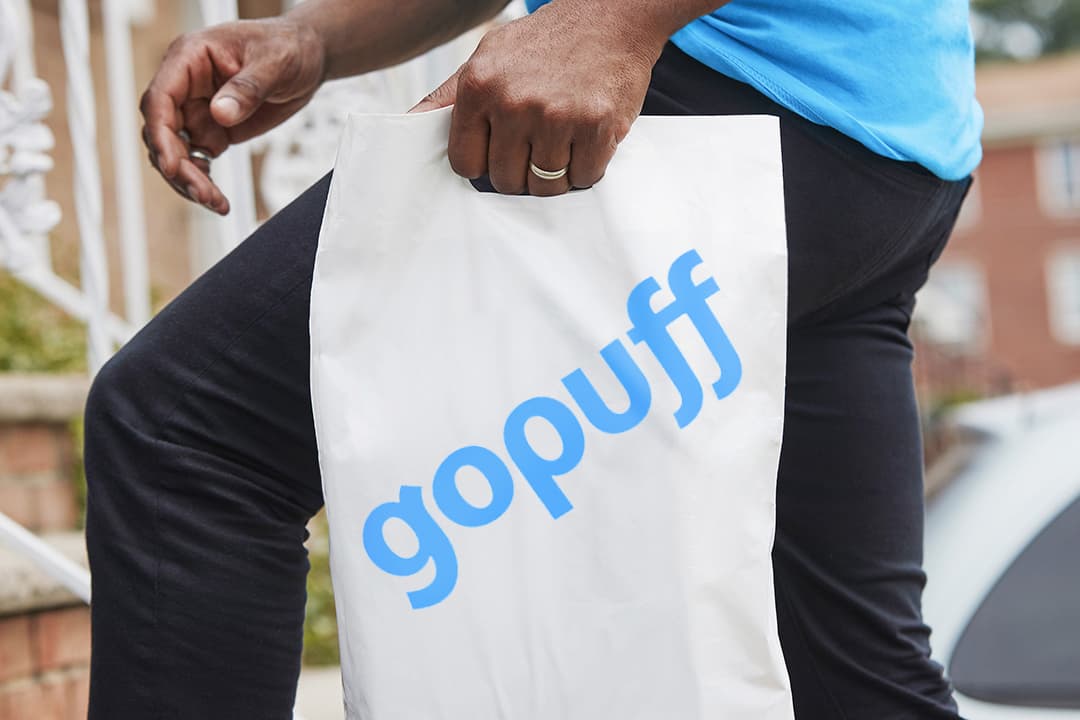Gopuff CEO Yakir Gola says its business model will outlast rivals as instant delivery space grows more crowded

A bag of groceries with the logo of American on-demand delivery start-up Gopuff.
Gopuff
As delivery start-ups race one another on speed, Gopuff co-founder and co-CEO Yakir Gola said Tuesday that it has staying power to outlast rivals.
He said the venture-backed company not only wants to get diapers, snacks and more to customers’ doors quickly. He said it also wants to deliver a better customer experience and build a profitable business that can scale across the globe.
“I really believe we’re in a category of one,” he said at the Groceryshop conference in Las Vegas.
Gopuff is part of an increasingly crowded field of start-ups that resemble an online version of convenience stores and grocers. Unlike other delivery companies, such as DoorDash and Instacart, GoPuff doesn’t retrieve merchandise from retailers’ stores. Instead, it has its own network of micro-fulfillment centers —mini, high-tech warehouses — stocked with inventory. Contract workers pick up the orders and quickly drop them at customers’ doors in about 30 minutes.
Some competitors, such as Gorillas, Getir and Jokr, have launched in new markets and promised even faster delivery times of 15 minutes or less.
Yet Gola said it is a veteran in the category. Gopuff coined a term for the group: “instant needs” companies.
Gopuff was born in 2013 when Gola and his cofounder, Rafael Ilishayev, were students at Drexel University in Philadelphia and wanted a way to get late-night snacks like chips and candy without running to a convenience store. The company began delivering those goods, along with hookahs and tobacco products.
Now, it operates in more than 1,000 cities and carries more than 4,000 items from pet food to over-the-counter medication. Its valuation hit $15 billion in July. And it includes brick-and-mortar stores, which double as warehouses. It acquired two regional alcoholic beverage chains: California-based liquor chain BevMo! in December for $350 million and Kentucky-based Liquor Barn in June for an undisclosed amount.
He said Gopuff is keeping delivery fees low and improving its economics by cutting out the middlemen and making money by selling products and ads. Its delivery fee is $1.95 per order, with an up to $2 additional charge for orders including alcohol.
“Once you have too many parties involved — the store, the driver, the delivery platform itself — you start to erode margin and the customer experience is not flawless,” he said.
Gola said the company is adding 40 or 50 micro-fulfillment centers every month and pushing into new categories. During the pandemic, it added household items like cleaning products and at-home Covid-19 tests. It also began delivering hot food, such as coffee, breakfast sandwiches and pizza, in select locations.
The average customer still skews young, he said, in their late 20s or early 30s, but a shrinking percentage are college students. Its fastest growth category year over year has been baby products, he said.




